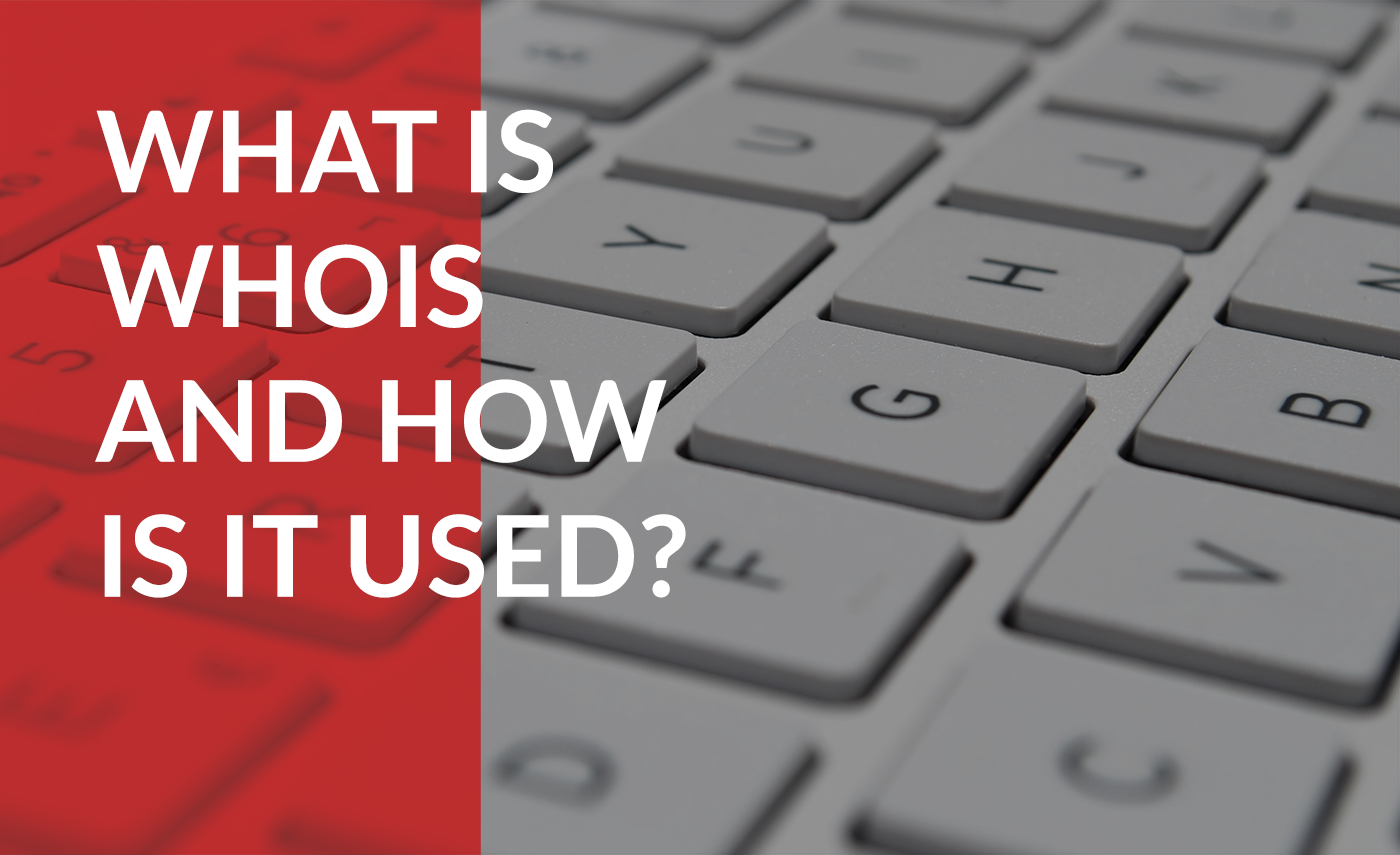What is WHOIS and How Is It Used?
Every domain name that’s been registered belongs to someone, and by default, that registration information is public.
WHOIS is a way of storing that information and making it available for the public to search.
In this post, we’ll dive into the WHOIS public database to understand what kind of information is stored there, why it’s available, and how you can use it. We’ll also discuss options at your disposal for keeping your personal information private in the WHOIS database.
What is WHOIS?
WHOIS is a public database that houses the information collected when someone registers a domain name or updates their DNS settings.
ICANN, the International Corporation for Assigned Names and Numbers, regulates the WHOIS database. They’ve done so since 1982, back in the wild and wooly days of the early Internet. They describe the WHOIS service as a “ …free, publicly available directory containing the contact and technical information of registered domain name registrants.”
The registration data that’s stored in the WHOIS database is actually held in different locations, all managed by different registries and registrars. A registry owns and manages domain extensions, like Verisign who owns .com and .net, but they don’t sell them. Instead, their domains are sold and registered through different registrars, like Domain.com.
Why was the WHOIS database created?
Initially, the database was created as a directory. It listed “the contact information … of anyone transmitting data across the ARPANET,” a building block of the Internet as we know it today.
Think about it: The Internet we’re familiar with today is absolutely massive. Odds are, you can find just about anything on the Internet. But how often have you stopped to think about where the information is coming from and who’s behind it? With the rise and prominence of fake news, it’s more important now than ever before to know the source of your information.
WHOIS helps to democratize the Internet. Anyone, from businesses and corporations to law enforcement and individual users, can access and use the WHOIS database to find out who is behind a domain name and any associated website.
Beyond that, many people find the WHOIS database a great tool for business opportunities. If you’re looking to take your business online or start a website you’re going to need a domain name. However, as you get started, you might find that the domain name you want is already registered by someone else. You can use the WHOIS database to get their contact information and reach out to try and broker and deal for the domain name you want.
What kind of information is stored in the WHOIS database?
When a domain name is registered the registrant has to supply their information and it needs to be accurate. If you supply false information when registering your domain name you run the risk of losing your domain. ICANN writes, “If the domain name registrant knowingly provides inaccurate information, fails to update information within seven days of any change, or does not respond within 15 days to an inquiry about accuracy, the domain name may be suspended or cancelled.”
The information collected during the domain registration process includes your:
- Name.
- Address.
- Phone Number.
- Email Address.
That’s pretty sensitive information to have at anyone’s fingertips, especially the Internet-at-large. If you’d rather not have all of your personal information easily searchable by anyone with an internet connection, you do have options.
Most every domain name registrar offers some form of domain privacy, which is just as it sounds. Domain privacy allows you to supplant the registrar’s information for your own, so instead of having your contact information displayed in WHOIS Lookup results, your registrar’s will show. If someone needs to contact you about your domain name your registrar acts as the “middle man” — they’ll direct any inquiries to you for you to view and act upon.
At Domain.com, we’ve taken domain privacy to the next level. We offer Domain Privacy + Protection, a tool that keeps your information out of the WHOIS database and provides malware scans and blacklist prevention, the latter powered by SiteLock.
In addition to your information (or your registrar’s if you’re using domain privacy), WHOIS Lookup results display information about your registrar, administrative contacts, and technical contacts. This information is incredibly useful to have on hand if you run into any technical issues with your domain or site.
WHOIS Lookup limitations
While the WHOIS database stores a massive amount of information about registered domain names, it doesn’t display all of the registration information for every domain name. Certain TLDs, like .com and .net, will always have their registration information in the WHOIS database. Other TLDs, like .me or .gov, display less information. And then there are some domain extensions, like .asia or .coop, that don’t allow for domain privacy, so the registrant information will always be searchable and viewable.
ICANN is always working to improve the WHOIS system and has acknowledged that “The evolution of the Internet ecosystem has created challenges for WHOIS in every area.”
Rest assured that as improvements are made, Domain.com will continue to strive in providing the most accurate information while ensuring you have the tools you need to maintain your domain privacy and protection.
Ready to perform a WHOIS Lookup?
Get started researching domain names today at Domain.com
If you have any questions about understanding your WHOIS Lookup results, or any other questions about WHOIS in general, let us know in the comments below. Happy searching!
